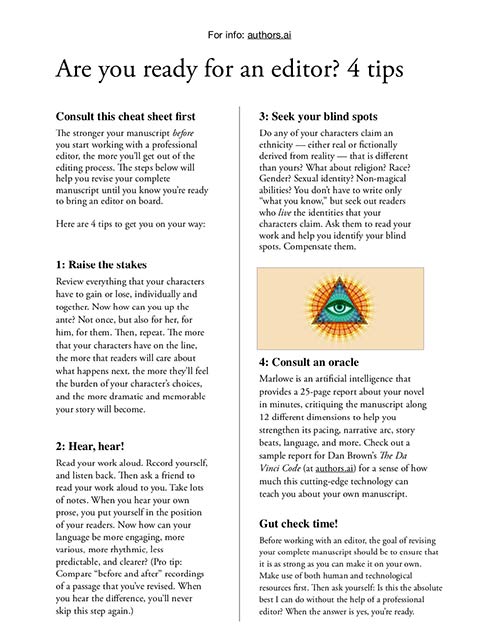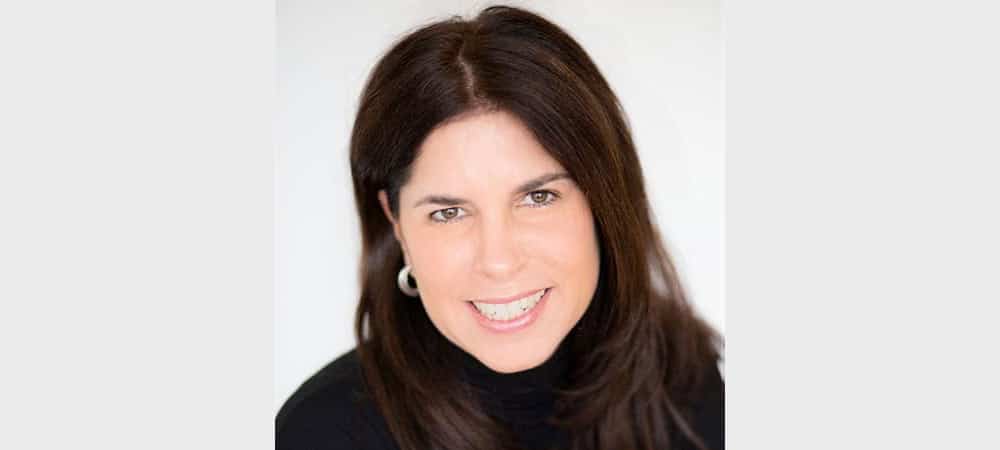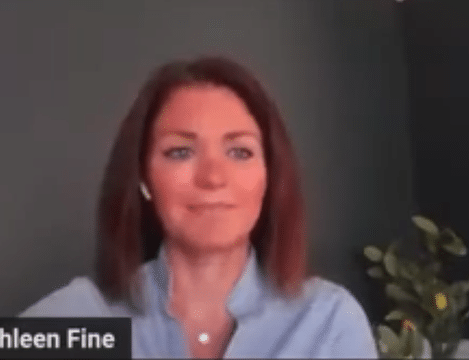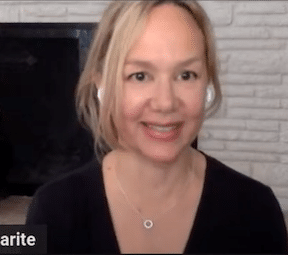On our most recent First Draft Friday video chat — which we’ll soon be turning into a podcast — bestselling fantasy author Charlie N. Holmberg sat down with veteran editor Jason Kirk to discuss the benefits that a professional book editor can bring to an author’s writing career.
I hired a developmental editor on Reedsy to get my first novel, Biohack, into shape and was thrilled with her incisive feedback and detailed markup of my manuscript. (I was also relieved that she found the storyline engrossing and plausible.) For my next thriller, Catch and Kill (part of the same series), I incorporated many of the lessons I learned the first time out.
Even if you’re confident in your writing, plot structure and storyline, it’s worth having a professional editor provide a detailed report about your manuscript — at least with your debut novel, if not with each succeeding one. Supplement that with the lessons you’ll glean from Marlowe, Authors A.I.’s artificial intelligence and virtual editor, and you’ll be in great shape.
When are you ready for an editor?
I met Jason Kirk earlier this year on a Zoom chat when we decided to start building out Authors A.I.’s talent directory (still a work in progress). Jason was recommended to us by two of the authors on our team, fantasy authors Charlie N. Holmberg and Jeff Wheeler.

Jason is the award-winning editor of more than a hundred books. He offers developmental editing and line editing across a range of fiction and nonfiction genres. Books he has worked on have hit the Wall Street Journal best-seller list nine times; won the Arthur C. Clarke, British Science Fiction, and dozens of other awards; and moved more than 9 million units.
He and Charlie discuss Jason’s advice for working with a professional editor on the video chat, and you’ll want to download his free handout:
Are you ready for an editor? 4 tips
The stronger your manuscript before you start working with a professional editor, the more you’ll get out of the editing process. The following steps will help you revise your complete manuscript until you know you’re ready to bring an editor on board.
Here are Jason’s top tips:
Raise the stakes
1Review everything that your characters have to gain or lose, individually and together. Now how can you up the ante? Not once, but also for her, for him, for them. Then, repeat. The more that your characters have on the line, the more that readers will care about what happens next, the more they’ll feel the burden of your character’s choices, and the more dramatic and memorable your story will become.
Hear, hear!
2Read your work aloud. Record yourself, and listen back. Then ask a friend to read your work aloud to you. Take lots of notes. When you hear your own prose, you put yourself in the position of your readers. Now how can your language be more engaging, more various, more rhythmic, less predictable, and clearer? (Pro tip: Compare “before and after” recordings of a passage that you’ve revised. When you hear the difference, you’ll never skip this step again.)

Consult an oracle
3Marlowe is an artificial intelligence that provides a 25-page report about your novel in less than an hour, critiquing the manuscript along 12 different dimensions to help you strengthen the pacing, narrative arc, story beats, language, and more. Check out a sample report for Dan Brown’s The Da Vinci Code (authors.ai) for an in-depth sense of how much this cutting-edge technology can teach you about your own manuscript.
Seek your blind spots
4Do any of your characters claim an ethnicity — either real or fictionally derived from reality — that is different than yours? What about religion? Race? Gender? Sexual identity? Non-magical abilities? You don’t have to write only “what you know,” but seek out readers who live the identities that your characters claim. Ask them to read your work and help you identify your blind spots. Compensate them.
The bottom line
Before working with an editor, the goal of revising your complete manuscript should be to ensure that it is as strong as you can make it on your own. Recognize the available resources — human and technological – and make use of them first. Then ask yourself: Is this the absolute best I can do without the help of a professional editor? When the answer is yes, you’re ready.
GET FREE A.I. REPORTS
Transcript of the conversation
Charlie: I am Charlie N. Holmberg here with Jason Kirk to bring you First Draft Friday, a bi-weekly live chat via Authors AI. Today we’ll be talking about working with an editor, a lot of the secret sauce of editing. So, I’ll just go ahead and introduce myself. I am Charlie N. Holmberg, I write fantasy and romance, I am internationally published, and I am an Amazon and Wall Street Journal bestseller, and a lot of the books that I have out wouldn’t have happened without our guests here. So, Jason, do you want to introduce yourself?
Jason: Sure. My name is Jason Kirk. I’ve been working as an editor in one capacity or another for about 20 years now. Most recently with a science fiction and young adult imprint that has published a number of Charlie’s books. In fact, Charlie and I have worked on… I think we figured out 10 books together now and it’s been great. So, I’m really excited to talk about you know, why and how to make the best use of your work with an editor. And it’s good to be having this conversation with Charlie in particular because we’ve worked so much together and she’s as a well-established author with maybe 12 books published now you should be a great kind of foil to some of these things that we talk about because you’ve been through it from one side you know, from the author side. So, thanks for joining us, happy Friday.
Charlie: Yeah. And I’d say that I’ve actually been orphaned twice as an author. That’s when your editor leaves your publisher and you have to get a new editor and if they don’t like you, then you’re kind of screwed. And so, that happened right after my debut novel. And I had no idea what that meant, but fortunately, Jason was my new editor, and he took me under his wing, and it worked out. So, I feel like I missed a bullet. Okay so, we’re talking about, you know, the secret sauce of editing, so why this topic?
Jason: Yeah, that’s a good question to start with. I am firmly convinced that everybody needs an editor even editors, and that’s not just sort of stumping for what I do for a living, but you know, this is probably true in any art form where none of us can see our own work the way others will see it. And that’s why it’s really important to bring an editor in. Now that said, time with an editor as experienced authors can tell you is really valuable time and there are better and worse ways that you can make use of both the time that you have and the things that you learned from that process. So, we’ll be talking today about sort of the before and after of working with an editor, sort of how to know when you’re ready and then how to make best use of the things that you learn on an ongoing basis for successive books.
Charlie: And then, I will be here to support all of your comments because I have been thoroughly edited by you.
Jason: And I sort of indicated why I’m really happy to talk with you about this. There are probably four or five authors that I’ve worked with on five or more books and you’re one of them. And so again, our mutual experience, as well as our independent experiences should help to round out this topic pretty well.
Charlie: Awesome. So, Jason was kind enough to make us this little cheat sheet and I am going to put up the link for that on our video. And this is basically a handout that asks you; are you ready for an editor? And it has five beats on it that I would love to go over with you. And so, your first one is raised the stakes; so what are we talking about?
Jason: Yeah, so, any author like yourself, who’s worked with me before knows that this is practically my mantra as an editor particularly in series with regard to, you know, what book two should do over and above what book one did, but this is true within any book as well. So, again, authors who work with me will hear me continually say, raise the stakes. And what I mean by that is readers are… so to speak of it sort of conversely, readers are not going to be very interested in characters who don’t have a lot to gain or lose. So, the idea with this is that in the spirit of making sure that your manuscript is as good as it can be before you work with an editor in order to make sure that your time with an editor is the most valuable. You want to go through a number of these tips and there may be others as well to make sure you’ve done everything you can on your own so that you are most fit and most ready, or your manuscript is when it comes time to edit. So, raising the stakes is one of them.
And I encourage you to review, for all of your characters, what do they have to gain and what do they have to lose in the course of the story. And anything that doesn’t sound impressive or compelling or worth the characters making important decisions for probably needs to have the stakes raised. So, that’s what it really boils down to is making sure that each character has something to gain or something to lose, or ideally both that is compelling that’s going to motivate that character’s choices and that’s going to keep readers interested.
Charlie: Yeah, honestly, as far as editing go, I feel like that’s the number one thing. Sorry, I’m getting some echo on my side, but can you hear me? Am I going or are you good?
Jason: It sounds good.
Charlie: Okay, great. So, just want to talk about a novel that Jason was really hands-on with me for was my book, The Fifth Doll, and you really, really pushed this for me about having the constant conflict. And I remember reading your edit letter and you said, okay, so, at the 25% mark and at the 50% mark at the 75% mark, and I was like, I have never actually looked up the percentages of my book to see what happened there and I thought it was really interesting. I’m like, “Oh, like I need to have like this strong beat basically through this story.” And actually, that’s something that’s really interesting about Authors AI. So, if you guys are familiar or not familiar with Authors AI, we have this really cool artificial intelligence called Marlowe, which will basically read your manuscript for you and tell you so much information about it.
And one of the things, probably the thing I like the most about it is that it will actually outline the beats of your story. And it’ll tell you, here’s where the high points of your action are. And so, it’s so nice to have maybe even just a rough draft and to run it through Marlowe, and then she’ll tell me where my gaps are. And so, Jason, unfortunately, isn’t my editor anymore, I feel like she’s just Jasoning for me. She telling me, “Hey, this is the 75% mark, you don’t have anything,” and I got to step it up. So, it’s been really nice to have her as I mourn my loss of Jason.
Jason: Yeah, I’ll come back to talk about the Marlowe reports a little more later on, but that’s a really important point is that having, you know, as you know, Charlie, I talk a lot about those really important plot points at each of those sort of quarter ways through the story. And that’s only more important I think in… so first of all, that’s a tried and tested kind of structure, whether it be a short story or a film or a novel. But it becomes, I think increasingly important in the today’s world where for example, like Kindle unlimited pays authors based on the amount of the book that readers read. And so, if you don’t have an arresting opening scene and a big plot point, say a quarter of the way through; you may lose readers. And on a payment scale where you get paid based on how much people read; the importance of getting that structure and pacing right is only higher than it ever was before.
Charlie: Yeah, okay. So, another thing that you talked about is what you call here, here, and it’s about the importance of reading what you wrote out loud. So, why is that so crucial when we’re preparing a manuscript for an editor?
Jason: Yeah, so for a couple of reasons, but I guess at the highest level, the reason it’s important is that like authors are storytellers. Most authors are storytellers, whether they’re writing fiction or narrative nonfiction, or I suppose narrative poetry, even for that matter. And so, there are various ways to tell a story. You can tell it in a graphic novel, you could tell it in a motion picture. But for those of us here, we’ve chosen to tell our stories through the vehicle of language. And so, it’s not only important what happens to which characters and when, but sort of the delivery vehicle for this story, which is the language itself. And it’s really tough for any author. And I know this too because I write as well, I’ll be in poetry, but it’s tough to experience your own work the way readers are going to.
And so, no matter how readers sort of consume your story, whether they’re reading it on a screen, on paper, hearing it in an audio book, regardless, again, the language is the vehicle that you’re telling this story through. As writers, you can never divorce yourself really from your own work; you can try and create some of that remove by hearing what your work sounds like. And that could be reading aloud and recording it and hearing yourself back, or I’m a big fan of asking others to read passages of your work to you, to give you a sense of how, you know, no matter how well you think you’ve constructed a sentence, if it gets lost in someone else’s mouth or in someone else’s brain; that’s not going to deliver the meaning in the sentence and ultimately the story that you want to give. So, authors who I’m working with at try this for the first time often have this like wild watershed kind of moment. And many of them will never skip this step again because of how much they learn about how their own story sounds. And so, I know like in your case, Charlie, most, if not all of your books have been published in audio as well and I know you’ve at least dipped into those recordings. So, I’m curious to hear from your perspective, like what might you have learned from hearing at least a professional narrator read your work?
Charlie: Yeah, because it comes across so differently when somebody else’s interpreting it [unclear11:20] I listened to the audio books and audio books are so great and then they’re so awful the same time. Because I’ll read passages out loud to myself, but I’ll never read an entire novel out loud to myself. And so, when I hear that read out loud to myself, I catch like everything I missed. And then it’s too late, the audio books out, I can’t go back and fix it and it’s just like, ah, I feel like cry. It almost feel like a good steppingstone in between that, especially when novels are so long. I’m sure you’ve heard of this where people put their manuscripts in a different font and then reread it because it forces your brain to kind of restart and read it new, so that’s a great tactic there.
And actually, I just got to write a short story for at Brigham Young University and they wanted us to record audio for it. So, I’m not an audio narrator, but I went ahead and did it. It was only a 4200-word story. And I had actually read the story out loud once before, but actually reading it out loud, like in the audio. And I’m like trying to do voices and inflections, I totally caught where I had like repeated words really close to each other or where I stumbled over a sentence. I’m like, oh, and I have the choice, okay do I go back and fix this and rerecord this story or do I just like fudge it and keep going, but you definitely catch so many more things that your writer brain has become numb to when you can hear it out loud.
Jason: Yeah, anything like, even the change of font, anything that sort of knocks you out of your kind of authorial comfort zone or, you know your singular vision about your own work is a great idea. And I like the example you gave it’s like, did I really say actually three times in that last paragraph. You know, you might not notice it on your screen or in your traditional font, but you certainly will when you hear it.
Charlie: Yeah, definitely. So, the third thing on your handout is seek your blind spots. And this is something that’s actually come up a lot in conversation with authors. So, what do you mean by seeking your blind spots?
Jason: Yeah, I very much means that sort of seek it out. And so this is like, I think most of the industry is particularly more sensitive to this recently, although I’m going to kind of abstract the idea at the end as well. But the idea is that if you are writing characters who do not have the same history as you yourself; inevitably, those characters should and ideally will experience the world in a way that you as the author do not. So whether maybe the character is of a different race, a different religion, grew up in a different country, whether it’s fictional or realistic than you did, or may have different abilities, like the list goes on. But the idea with this is that we each week have our own personal history only.
And so, by encouraging people to seek out their blind spots, what I mean is that there are things you may not notice if you are a black author writing a white character or vice versa. If you are an author who did not grow up with religion and are writing a Muslim character; the idea here is to seek out readers who do share some of the real lived experience of the characters that you’re trying to create, and to ask them to comment to give you feedback on your portrayal of that character. And as you’ll see on the sheet, I finished this little blip by saying compensate them; this is a big deal.
All of us I mean, no matter how inexperienced or experienced you are as an author, there are a lot of people that go into the making of a book; author, editor, cover designer, etc. Unless anyone’s out there just sort of doing this out of the goodness of their heart; we’re all striving. And so, the idea here is like, you know, you may be able to ask your mom to read something and not have to pay her for it. But if you’re really looking for an opinion that’s valuable to the portrayal of your characters; seek these people out, ask them nicely, accept it if they say no and find a way to make it worth their while if they’re willing to help you out. Because again, we all have blind spots and it’s really important to seek them out before readers start dropping one-star reviews on you book.
Charlie: Yeah, exactly. And honestly, like in my experience, you would be surprised at how willing people are to read something for you. Like, especially when they’re like, oh, I’m being represented, and a lot of times there’ll be more than willing to read for you. But like you said, if it’s not really their cup of tea, you know, move on.
Jason: And compensating them doesn’t necessarily mean you have to pay them. I mean, starting authors are not yet making royalties and may not have an advance in hand, and may not be able to do that, but you could acknowledge them in your book. You could send them a signed copy when you’re done.
Charlie: Make them dinner for every chapter they read.
Jason: The point is, I mean, I anticipate that in this pandemic state, the barter economy is only going to grow. And so, my point is to make it worth their while not necessarily to cut a check, although that will generally be welcome too.
Charlie: Alright, so, you do bring up Marlowe in your handout and you say, we want to consult an Oracle. So, how can Marlowe help us be ready for a professional edit?
Jason: Sure. When I saw my first example of a Marlowe report from Authors AI, I was astounded because yeah, it really covers so many aspects of the way a story works or should work. It covers so many aspects of the story itself, I mean, really my first reaction was like, everybody needs to do this before they come to me because it highlights a bunch of things that absent that guidance, I would end up covering as an editor myself. Whether it be the pacing is skewed because all of the action happens in the first third, and then nothing happens in the middle. Or here’s a list of overused words, meaning, you know, words that you keep coming back to again and again. And by that I don’t mean like your character’s name or “the”, but like I cited actually before. People use this word in conversation all the time and it ends up creeping into writing all the time too.
Or for example, like, and again, I’ve been doing this for years with authors, like you use the word eyes 260 times in this story. So not only might you want to mix it up with some synonyms, but maybe you’re just talking and thinking about what your authors are looking at or what your characters are looking at too often. So, those are just a couple of sections, the pacing section and the overused word section of like a 25-page report that Marlowe gives you. And that ultimately, if you were to get the report, go through an entire round of revisions based on the feedback from the report and then work with an editor, then that gives both you and the editor the opportunity to work on much deeper and more fine-tuning kind of aspects of the story that you sometimes can’t really deal with until some of those big picture things that the Marlowe reports call out really, really well, until those are taken care of first.
So again, the idea here is to prepare your manuscript in such a way that you can make the most of your time with an editor. And as fantastic as the Marlowe reports are, I’m certainly not going to be the one to tell you that it replaces an editor. But again, the goal is to be able to use your time with a thinking, breathing human editor down the road in a much more valuable way because you’ve already tackled these things, that the Marlowe AI is really fantastically good at identifying in advance.
Charlie: Yeah, and it makes me think of this metaphor [inaudible19:59] Marlowe. It’s kind of like the framing of a house, but you can’t put in all the insulation and the drywall and everything without a hands-on editor because they’re going to know how to fix it. And this might be because I’m currently finishing my basement and putting in drywall. There are really interesting things that I have found from using Marlow, for example, the repeated words. Every single manuscript, I’ve put through Marlowe has the exact same highest used word in it and it is only. I use “only” like crazy, I never realized like how “only”, I only use only. So, that’s good to know that about me. Another thing that I’ve actually found really interesting is I ran a rough draft through of a book that I haven’t published yet, and it will tell you what your longest sentence is, and my longest sentence happened to be the very last sentence of the book. And it was enormous, and it was like six lines long.
And I read through it, I’m like, “Oh my gosh, this is such a hot mess ending,” just because of how the syntax of the sentences and that’s where you want the last and so I was like, oh, I’m so glad I can fix that before I send this to somebody, or they tell you how much dialogue, not only how much dialogue your book has, but how much is considered good for a best seller. So, it’s like, oh, you have 18%. You want 21%. I’m like, okay, I’m going to add a conversation, you know.
Jason: That’s really valuable too. I didn’t list all of the sections of the report. But I actually just finished editing a book that when it came to me, it was probably 75% dialogue, and so, yeah, really high. And so, through several rounds of editing, we worked a lot on getting that down, but that’s not to say that there’s an ideal, probably you want to max out around maybe 25 or 30%. But the point is like 70% was overwhelmingly too much. There was just almost no narration in between. And that’s yet another of the things that Marlowe will identify for you and that you can work on revising, again, before you come to an editor whose time with you as an author can and I would argue should be spent on deeper things once that kind of stuff is covered.
Charlie: Yeah.
Jason: It’s amazing, I believe there’s a sample report on the website which will just kind of illustrate what we’re talking about right now. If you haven’t seen it, I mean, I can’t recommend it highly enough.
Charlie: So, basically in a nutshell, we just want to ask ourselves, is this the best manuscript that I can write without the help of a professional editor? But on that note, you always want to hire a professional editor. Guys don’t ever try to edit by yourself.
Jason: Yeah, exactly. I mean, to return to your drywall metaphor, you wouldn’t call the painter to come and paint the inside of the house before you’ve put up the drywall. And so, all of this again is to just make sure that you can say with confidence, if you can say with confidence, I’ve done everything I can with the available resources, be-it technological, other readers, reading to myself. If you can honestly say, I can’t make this any better on my own; that’s the time to bring in editor on it.
Charlie: Yeah. So, we have all this information, okay, here’s what I’m going to do before I hire an editor, but then once you have an editor and once, you’re working with editors, you have this idea of teaching an author to fish, right? And so, the idea that by working through a professional editor, we learn more self-editing tactics so that we can start being better and better and better on our own.
Jason: Yeah, the aim of this is not only so that you can self-edit better on your own, but also so that each time that you work with an editor, whether it’s the same one or a new one, the kinds of things that you work on in terms of improving the manuscript are not the same things that you’ve worked on before. By which I mean like, certainly it’s always important, story structure is always important, who’s your audience is always important. The importance of these rubrics, I guess, will not change from book to book, but it is not worth your time as an author revising or an editor’s time say to be working on a second book where the editor’s providing, for example, you’re still using like, Charlie, you’re still using “only” all the time.
It’s not worth your time or necessarily mine to hear that same thing book after book, after book. So, a couple of the examples that I’ll give, and I hope to hear some from you too, are just about experiences where I’ve worked with authors book over book, and each book we focused on new things because the things we talked about before the author has internalized and learn to apply to this next story. So, you know, overused words are one of those, but like in my case, again, because I talk about those plot quarters all the time, I think any author I’ve worked with on more than one book in the second book, usually the author comes to me with the manuscript and when it’s time to start editing and says, you know, for example, “Here’s what I consider my big plot points. Let’s review those and make sure that they’re the right plot points and they’re coming at the right timing.”
Another example is like, again, my mantra has very much been raised the stakes. And so, now authors that are working on book two or book three in a series will come to me, usually pretty enthusiastic at the start of the edit and say like, here are all the ways that I’ve raised the stakes. The world is geographically bigger; the characters have more to lose. You know, there are various ways that you can raise the stakes, but it’s always satisfying to me when a repeat author, someone I’ve worked with before comes back and gets ahead of the… usually enthusiastically, it gets ahead of some of the issues that we’ve already talked about in prior books. That ultimately makes your experience as an author working with an editor, ideally more and more valuable every time.
Charlie: Yeah, there’s a lot that I’ve learned. A big one, honestly from book to book to book is learning where to cut the fat. And even if this is just in line edit, this learning what I need and what I don’t need with Siege and Sacrifice, which is the third book in my numinous series, we went over a bunch of stuff about how I had unnecessary points of view in that book. I had a side character who would have a point of view chapters, but what he was saying was pretty much shown in everybody else’s and so, I had to cut those scenes out and it made the book a lot more streamlined. So, that’s definitely something that I’ve learned just from seeing my edits and reading through edits and accepting edits.
Another one is always to have clear-cut and concise world-building. It’s funny because generally, I feel like that’s what I’m known for is my world-building, but readers don’t see is all the times that, you know, you or Angela or someone will be like, “Well, why don’t they just do this?” And I’m like, “Oh no,” you know, like we want it to all be concise. We want to exactly how the world works, and it has to just fit. There can’t be any loose ends and the magic system, or in the setting. They are just like, “What have you learned?” Like, “Let me tell you all the things you’ve taught me.”
Jason: It’s not just me, like you’re in the position where you not only worked with me as an acquiring editor for 10 books, but for most of those, you worked with Angela Paula Durrell as a developmental editor. And I mean, I won’t speak for you, but I suspect that you’ve gained something that you might not have otherwise from working with the same two folks again and again.
Charlie: Oh, definitely. I just slowly absorbed your brain matter.
Jason: I think Angela is fantastic too; I’ll leave the plug at that. She’s really particularly good at developing with authors. So, authors that she works with multiple times over, ideally the editor gets better at editing that author just as the author gets better at addressing the things that the editors pointed out before in prior books. Again, so as to make better use of everybody’s time.
Charlie: Yeah, exactly. Okay, we do have some questions, so, I’m going to pop them up over here.
Jason: Fantastic.
Charlie: Okay, so we have a question from Alessandra, and she says, Jason, do you think an author needs multiple editors development, copy, etc.? Maybe you could tell us all the editors, like what are the standard edits that somebody has to go through?
Jason: Yeah, sure. Short answer is yes, I think you do. Generally, there will be at an early stage of the process, meaning you’ve completed the manuscript but no other professional editor has seen it yet. Generally, you would first work with a developmental editor, and that someone like myself who’s going to work with you on aspects of this story, big picture aspects of the story first. Again, structure, pacing, characterization, immersive settings, these kinds of things, as well as in some cases a round of line editing, which is like once all the primary architecture and characterization is in place, that’s a much more sort of micro-focused on the language itself. Generally, developmental editors will do all of that with you.
In the case of Charlie’s books, I was the acquiring editor, and when it was time to start the developmental edit, I would work with Charlie and Angela whom we’ve mentioned and sort of offer some initial editorial guidance and then kind of be an observer through the process as they pass the manuscript back and forth. When that’s all done, that is distinct from copy editing. And yes, everyone needs a copy editor, even editors. And that’s someone who’s specifically focused on things like consistency in the language or the characters names always spelled the same.
Charlie: Please expand on that.
Jason: I mean, depending on how the developmental edit went and what the specialties are of the copy editor, ideally, they should be looking for things like internal and consistencies and that kind of stuff. And then, in the case of at least most publishing houses, and I would advise this for self-published authors as well. You would then want to work with a proofreader, who’s essentially like a second copy editor, but someone who’s incredibly meticulous on looking for any little black mark on the white page that the copy editor or the prior editor or the author may have missed, again, so that the language is as polished of a vehicle as it can be for your storytelling.
Charlie: Excellent. Alright, we have another question, and this is from Ian. He’s asked; “What’s the best strategy is for working with an editor going chapter by chapter or hand in a full first draft?”
Jason: Yeah, good question. I think you may get different opinions on this depending on which editor you ask. But for me, I generally prefer not to dip in until there’s a full first draft. Because in large part, if I can’t see the big picture, I may not be able to offer the best guidance for what’s missing in chapter one or are things too heavily foreshadowed early on. If I don’t know what’s coming at the end, I don’t know how to even think about those questions. That said, sometimes, and Charlie’s an example of this. Sometimes I will be involved before there’s a full draft, but generally not in terms of reading pages and offering feedback, but more in terms of like when I was at my former publisher, when I acquired three books from Charlie, she would have generally a detailed plot synopsis for the first book and then a less long and less detailed idea of sort of where this series is going from there. So then, like when it came time to write book two, we would sometimes brainstorm a little bit about like based on where book one ended up; these are some ideas of where book two could go. So, sometimes there’s kind of an editor involved in the story development stage before there’s a manuscript. But generally in terms of actually reading and commenting on pages, my personal preference, a strong preference is to have a full draft. And this is true for novels, short stories, whatever it maybe.
Charlie: Yeah, and I would say, if you do want chapter-by-chapter feedback, that’s a great thing for beta readers or writing group to do for you. And so, like, I have actually two different sets of beta readers. I call them my alpha readers and my beta readers. And sometimes I send them a whole manuscript, sometimes I’ll send it to them chapter by chapter. And even though they’re not a professional, a lot of times they can still see things like, I don’t like this character, or I didn’t understand what happened here. And you can get that chapter-by-chapter feedback so that maybe if you do have something broken early on, you can fix it before you end up with that for the whole novel.
Jason: Yeah, and those are your readers. I mean, unless you’re trying to sell your book only to professional editors, your friends, family, other readers of the genre are really the people that you’re ultimately trying to satisfy. And so, bringing some of them in in advance, it’s priceless.
Charlie: Yeah, Awesome. Well, we are out of time. Jason, thank you so much for coming on here and telling us all about this beautiful world of editing.
Jason: Absolutely.
Charlie: We did talk a little about Marlowe, which is our Artificial Intelligence manuscript evaluator. If you want to check her out, you can get a basic report for free. You can just visit her on Authors AI. And I have that URL up on our screen right now. And you can check that out and you can look at the pro reports too if you want. And you know, if you want to find an editor, Jason, where could they find you?
Jason: Yeah, I’m working on my website at the moment. But you can find me on Facebook, Twitter, Instagram, I’m at @brasswax on all three.
Charlie: Brass like a trumpet.
Jason: Yeah, brass like a trumpet, and wax like vinyl.
Charlie: Yeah, and then if you guys want to check out me or any of the books that Jason fixed for me, you can find me at charlienholmberg.com and also on Amazon. So, thank you guys for joining us for First Draft Friday, and we’ll see you in two weeks.
Jason: Thanks everyone, have a great weekend.






